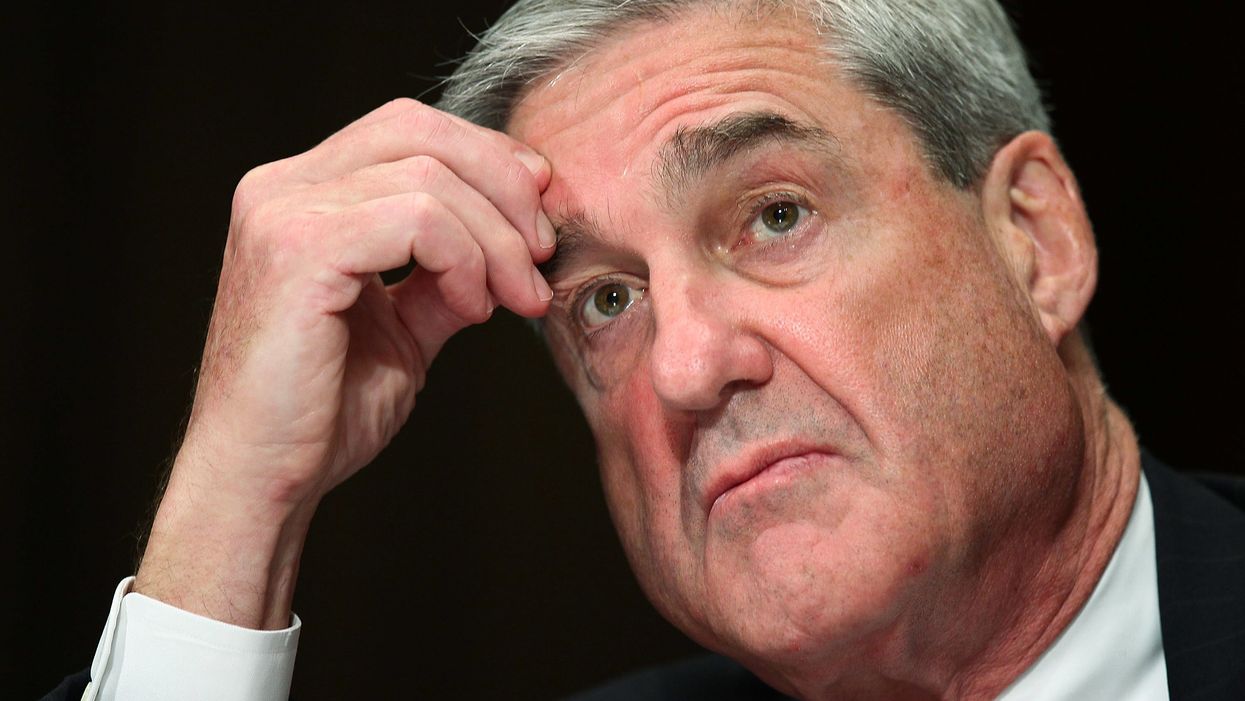
Alex Wong/Getty Images

The report said that there was not enough evidence to bring criminal charges against Trump campaign associates
On Thursday, the Department of Justice released Special Counsel Robert Mueller's 400-page report, which had been more than two years in the making. Here are some of the highlights. The report seems to largely back up Attorney General William Barr's summary.
According to the report:
[W]hile the investigation identified numerous links between individuals with ties to the Russian government and individuals associated with the Trump Campaign, the evidence was not sufficient to support criminal charges....Further, the evidence was not sufficient to charge that any member of the Trump Campaign conspired with representatives of the Russian government to interfere in the 2016 election.
The report did find that "several individuals affiliated with the Trump Campaign lied to the Office [of the Special Counsel], and to Congress, about their interactions with Russian-affiliated individuals and related matters. Those lies materially impaired the investigation of Russian election interference." Mueller specifically called out Former National Security Advisor Michael Flynn, campaign operative George Papadopoulos, former-Trump lawyer Michael Cohen, and former-Trump campaign manager Paul Manafort for lying during the investigation. This information had already been publicly known.
While Cohen, Manafort, and Papadopoulos all ended up facing jail time, they did so either because they lied under oath or because of past actions they had taken before they joined the Trump campaign.
While the first part detailed the investigation into the possibility of collusion, the second part of the report looked into accusations that President Donald Trump had obstructed the investigation. Mueller listed numerous examples, including the firing of James Comey and the president's attempts to have former-Attorney General Jeff Sessions take over the investigation despite recusing himself.
After pointing out examples of Trump opposing the investigation, Mueller said that his office had "determined not to make a traditional prosecutorial judgement" and so "did not draw ultimate conclusions about the President's conduct." He added that "if we had confidence after a thorough investigation that the President clearly did not commit obstruction of justice, we would so state. Based on the facts and the applicable legal standards, we are unable to reach that judgement."
He concluded with a line that had already been quoted in Barr's summary, which stated that "while this report does not conclude that the President committed a crime, it also does not exonerate him."
The report says that when Mueller was first appointed, Trump told his advisors that it could be "the end of his presidency."
Mueller described an instance in June 2017 in which Trump tried to get White House Counsel Don McGahn to tell Acting Attorney General Rod Rosenstein [Sessions was still in office at the time but had recused himself from overseeing the investigation] that Mueller needed to be fired. According to the report, "McGahn did not carry out the direction, however, deciding that he would resign rather than trigger what he regarded as a potential Saturday Night Massacre." The Saturday Night Massacre happened when former-President Richard Nixon's attorney general and deputy attorney general both resigned rather than comply with an order from the president to fire Watergate investigator Archibald Cox.
And McGahn wasn't the only one who refused such an order. The report said that the president had similarly asked Corey Lewandowski, his former campaign manager, to pass on a message to Sessions telling him to limit the investigation. According to Mueller: "Lewandowski did not want to deliver the President's message personally, so he asked senior White House official Rick Dearborn to deliver it to Sessions. Dearborn was uncomfortable with the task and did not follow through."
This is a developing story and will be updated as events warrant.